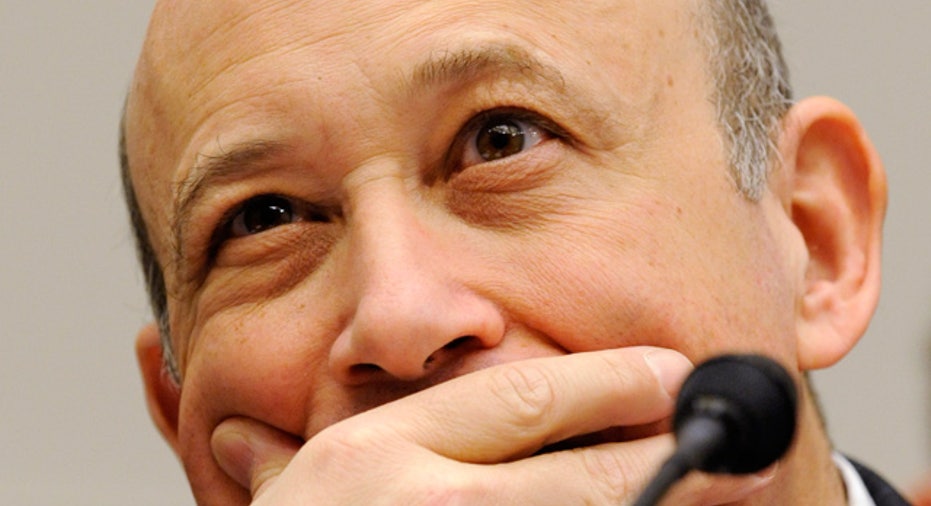Goldman Union Deal Lets Blankfein Keep Dual Roles

For the second year in a row, Goldman Sachs Group Inc fended off a shareholder proposal that could have led to a messy public vote to strip Chief Executive Lloyd Blankfein of his chairman's title.
By striking a deal for modest changes to the company's governance policies, Blankfein again potentially avoided the kind of embarrassment suffered by Jamie Dimon, CEO and chairman of JPMorgan Chase & Co (NYSE:JPM), who faced substantial opposition on a similar vote last year, or Citigroup Inc's then-CEO Vikram Pandit, whose executive pay plan was rejected by shareholders last year.
CtW Investment Group, an adviser to union pension funds with $250 billion of assets, said on Wednesday it agreed to withdraw its proxy proposal seeking a split after the company agreed to give Goldman's lead director, James Schiro, new powers such as setting board agendas and writing his own annual letter to shareholders.
"It clearly is a compromise. I don't see how either Goldman or the unions came out way ahead," said Ralph Cole, senior vice president at Portland, Oregon, investment firm Ferguson Wellman Capital Management, which does not own shares in Goldman. "The only person who 'won' is Blankfein. He continues to hold the dual role."
Unions and other activists have made it a priority to try to split the chairman's and CEO's roles at many companies to improve oversight. JPMorgan faces a challenge on Dimon's role again this year from a coalition of public-sector worker pension funds, for instance.
Already many companies are moving in that direction. Among those in the Standard & Poor's 500 index, 43 percent split the Chairman and CEO jobs as of November, 2012, up from 25 percent 10 years earlier, according to a survey by executive search firm Spencer Stuart. Just 18 of the companies had a formal policy requiring the split of roles, however.
Governance experts praised the Goldman deal as likely to improve oversight and probably the best terms that proxy-measure sponsor CtW could have achieved.
"From the shareholder point of view, I think this is the best real deal they could get," said Paul Hodgson, an independent governance analyst in Maine. Winning a shareholder vote would have been difficult given how many Goldman employees hold stock in the firm, he said.
"It's a significant improvement," said Amy Borrus, deputy director of the Council of Institutional Investors in Washington. Getting more changes would have been difficult, she said. "Persuading a board to take away the chairmanship from a CEO-Chair is one of the hardest 'asks' in corporate governance," she said.
Last month Goldman lost a bid with regulators to keep the proxy question off the ballot, a move that gave CtW more leverage.
Goldman said the changes would improve governance. "We've had a constructive engagement with our shareholders, and believe that the enhancements we have made further solidify the independence of the Board," the company said in a statement.
Executives declined to be interviewed, spokesman David Wells said.
CtW's efforts were overseen by its new executive director, Dieter Waizenegger, who took over the post last month after prior leader Bill Patterson retired.
Goldman lead director Schiro agreed to meet with CtW after the Securities and Exchange Commission rejected the firm's effort to keep the split chairman question off its proxy ballot.
Going into the meeting, CtW had concerns including whether Schiro would be an effective counterweight to Blankfein, Waizenegger said.
But Schiro seemed responsive to shareholder concerns, Waizenegger said. And the two had some ground in common since Waizenegger was born in Germany and Schiro was CEO of Zurich Financial Services from 2002 to 2009.
Waizenegger said his group expects more talks with Goldman on matters like environmental and social issues.
"This is not the end of the engagement with the company," he said. "But we have a commitment with the company to continue the dialogue."



















